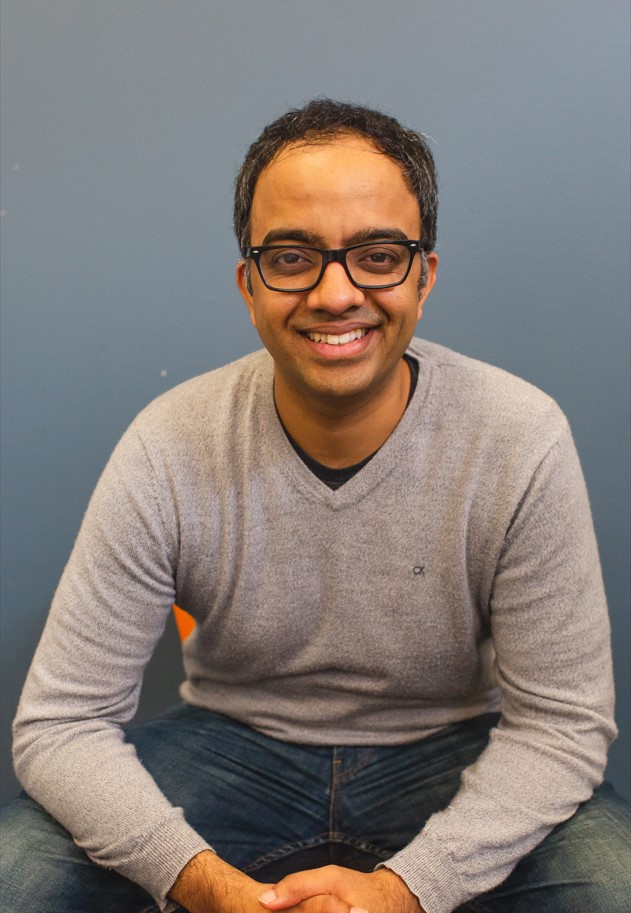From Bengaluru to Bay Area, A Founder’s Story with Thejo Kote

Thejo realized he needed to move to the epicenter of the tech startup world after his first company’s software thrived in India but ultimately failed to break through globally. This was around the time of Twitter’s meteoric rise, and he couldn’t help comparing his company’s performance! SoThejo chose to pick himself up and go again and his decision to move to the United States, get a master’s degree from UC Berkeley, then start another company in 2011 proved to be the right one. Automatic, which he co-founded, was sold to SiriusXM for $110 million. Thejo’s experience at Automatic revealed that widespread inefficiencies of accounting and finance in small to midsize companies can actually curtail a company’s growth. The most inefficient area he saw was non-payroll spending – no one had designed a fully articulated, consolidated software solution to fix this broken process. So he did; he started Airbase. Airbase was founded in 2017, and so far has raised $30.8 million in venture funding from leading VC firms including Bain Capital Ventures, and First Round Capital – and from others including the former CFO of Netsuite and co-founder of Okta, Airbase has gone on to become the world’s leading spend management platform. Patience, hard work, and passion are required and when coming from that place, you’ll get more opportunities than you know what to do with.
Tell us about your childhood and where you grew up
I was raised in a small town named Mysuru (about 150 km from Bengaluru), in a family that placed a strong emphasis on intellectual and academic pursuits. Both of my grandfathers were teachers, scholars, and authors in our native language. My family’s home was filled with a library of 3,000 books that grew over time. Growing up in this environment instilled a love of reading and learning in me. However, my family background was not oriented toward business or entrepreneurship. My grandparents’ generation experienced significant poverty, but with each subsequent generation, the situation improved. I am grateful for the opportunities and support that I have received from my family, which has allowed me to pursue my dreams of entrepreneurship and take risks. I am unique in my family in that I am the only one who has chosen to take a less conventional path and start my own business. My mother is still sometimes worried about my choices, but I am grateful for her love and support.
How did you get started as an entrepreneur?
After completing my undergraduate degree in electrical engineering, I found myself directionless and without clear goals or ambitions. School had always come easily to me, but as I progressed through university, I realized that hard work and determination were necessary to succeed in the real world. As I neared the end of my undergraduate studies, I became increasingly interested in technology and the potential of the Internet and decided to pursue a career in the tech industry. However, I quickly realized that finding a job in India as an electrical engineer would be difficult, and I ended up joining a well-known outsourcing company called Emphasis. It was during my time there that I began to seriously consider the path of entrepreneurship and the impact that technology could have on the world. I was particularly inspired by the founders of the company and their success as entrepreneurs in India. Eventually, I moved to Silicon Valley to pursue my goal of becoming a technology entrepreneur, as I believed that was where the action was. Now, I believe that if I were coming of age today, I would probably be building businesses in India, but back then, Silicon Valley was the place to be.
What is one business lesson you would tell a startup founder?
When seeking advice as an entrepreneur, it’s important to approach it with a critical mindset and filter it through your own experiences. I consider the potential value of advice and I truly want to learn from others’ mistakes, but it’s also important, to be honest with yourself about what is and isn’t working. A business is ultimately about solving a problem or addressing a pain point for customers, and it’s crucial to be intellectually honest, curious, and iterative in your approach to finding a solution that truly works at scale. Additionally, it’s important to avoid lying to yourself and to be fiscally responsible, especially when working with venture funding. It is easy to fall into the trap of thinking that you have found the solution and start spending money without verifying if it’s scaling. This is a common mistake, and one that I have made in the past, but I have learned from this and tried to do better going forward. If you are looking for advice from a startup founder, this is key.

